Washington, D.C. – U.S. Senators John Curtis (R-UT) and Brian Schatz (D-HI) introduced the Tribal Energy Fairness Act, bipartisan legislation to expand Tribal access to federal energy programs by removing unnecessary barriers and making technical fixes. It also allows Tribes to directly apply for and manage energy and grid resilience resources without needing to pass funds through utility providers.
“Unnecessary red tape and outdated restrictions are holding back access to energy development opportunities,” said Senator Curtis. “By removing these bureaucratic barriers, our legislation levels the playing field for Tribal communities—ensuring fair access to programs that strengthen grid resilience and support other critical energy projects.”
“Tribes deserve a fair shot at energy development, particularly on their own lands,” said Senator Schatz, Vice Chairman of the Senate Indian Affairs Committee. “This bipartisan bill will provide Tribes with the flexibility they need to access existing federal programs to lower costs, boost reliability, and strengthen their energy sovereignty.”
The legislation is backed by Tribal organizations and energy advocates working to expand energy access and resilience in Native communities.
“Energy production has long been vital to the modern Navajo economy and sustaining in our energy economy requires investing in its future. By removing unnecessary restrictions and financial burdens, the Tribal Energy Fairness Act will help the Navajo Nation pursue energy projects that create jobs and strengthen our communities,” said Buu Nygren, President of the Navajo Nation.
“The Iowa Tribe of Oklahoma fully supports the bill, which will honor Tribal sovereignty and enable tribes to fully utilize the Grid Resiliency Grant funds and provide much needed services to Tribal Nations when natural disasters hit our communities,” said Jacob Keyes, Chairman of the Iowa Tribe of Oklahoma.
Background:
The Tribal Energy Fairness Act aims to address longstanding technical issues for Tribes in two key Department of Energy (DOE) programs.
- First, the legislation would eliminate the “double benefit restriction” under the Tribal Energy Loan Guarantee Program, allowing Tribes to use other federal funds alongside a loan guarantee to cover up to 100 percent of project costs. It would also remove the cost-match requirement and permanently authorize DOE to provide technical assistance to potential loan awardees.
- Second, the bill would remove a requirement that Tribes sub-grant Grid Resilience awards to utility providers and would eliminate the cost-share requirement, making it easier for Tribes to directly access and benefit from resilience funding.
The full text of the bill can be found here.
